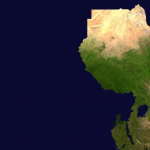China’s Belt and Road Initiative (BRI) has come under heavy criticism for financing and supporting pollutive coal power projects. For example in Pakistan, coal went from a negligible share of the fuel for the country’s electric power generation in 2014 to almost 20 per cent in 2019 with Chinese assistance. With the rising popularity of renewable energy sources such as solar, wind and hydropower, China is now changing focus towards a “Green BRI”.
In this podcast, host Arif Rafiq discusses the reasons behind this shift and its consequences with Dragon Road’s guest, Dr. Christoph Nedopil Wang. Dr. Wang explains the political economy behind the Green BRI, the incentives and financing models for stakeholders in the renewable energy sector. Most importantly, Rafiq and Dr. Wang shed light on Chinese intentions: is the shift just a PR exercise or is there an incentive structure and policy framework to go green at home and abroad. Lastly, will China meet its domestic goal of net-zero emissions by 2060?
About the Guest

Dr. Christoph Nedopil is an Associate Professor at the Fanhai International School of Finance (FISF) in Fudan University. He is also the Founding Director of the Green Finance & Development Center at FISF. Dr. Nedophil is also a Senior Research Fellow at the Central University of Finance and Economics and has been affiliated with Harvard University, the World Bank, and IMD Switzerland. He holds a PhD in Economics from the Technical University of Berlin and an MPA from Harvard. His Twitter is @nedopil.
Publications by the Guest
- How red-flagging coal can help align belt and road projects with China’s climate ambitions
- Green Development Guidance for BRI Projects Baseline Study
- Eureka! Europe’s Green Dream
- The Nature of Global Green Finance Standards—Evolution, Differences, and Three Models
- China’s Investments in the Belt and Road Initiative (BRI) in 2020
- Belt and Road Initiative & Green Urban Finance
A Non-Resident Fellow at the Middle East Institute in Washington, DC and president of Vizier Consulting, LLC, a political risk advisory firm focused on the Middle East and South Asia.




